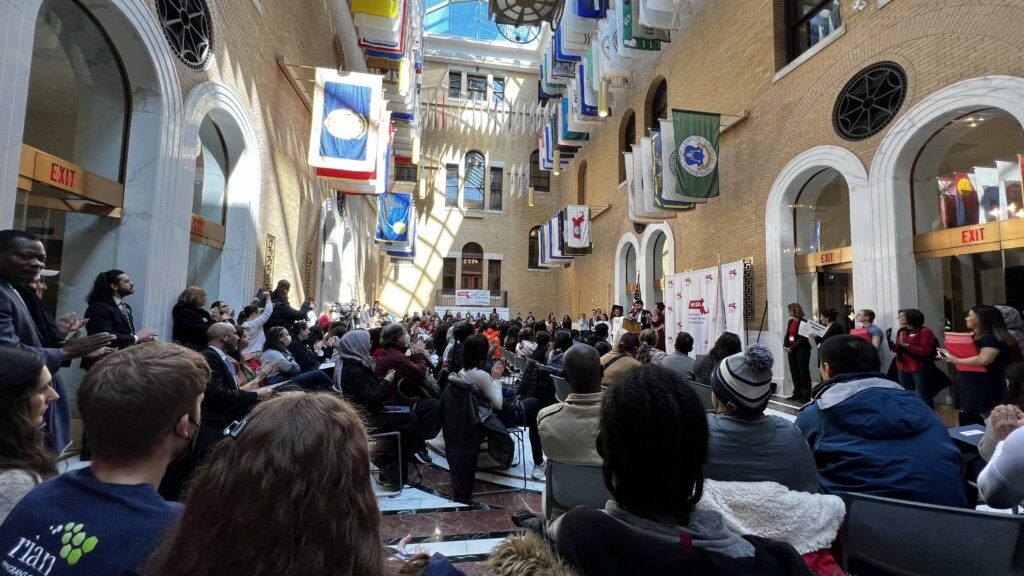
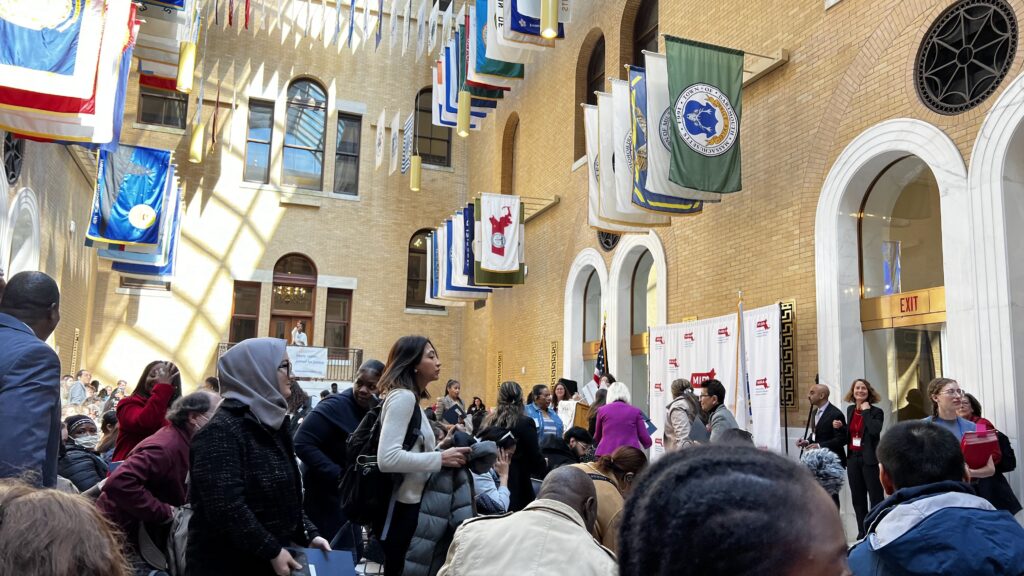
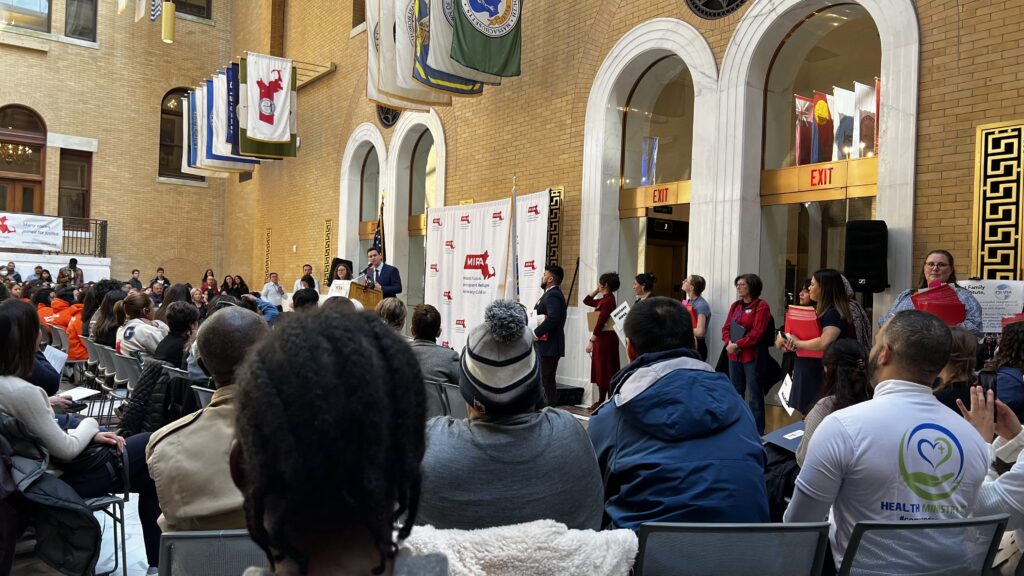
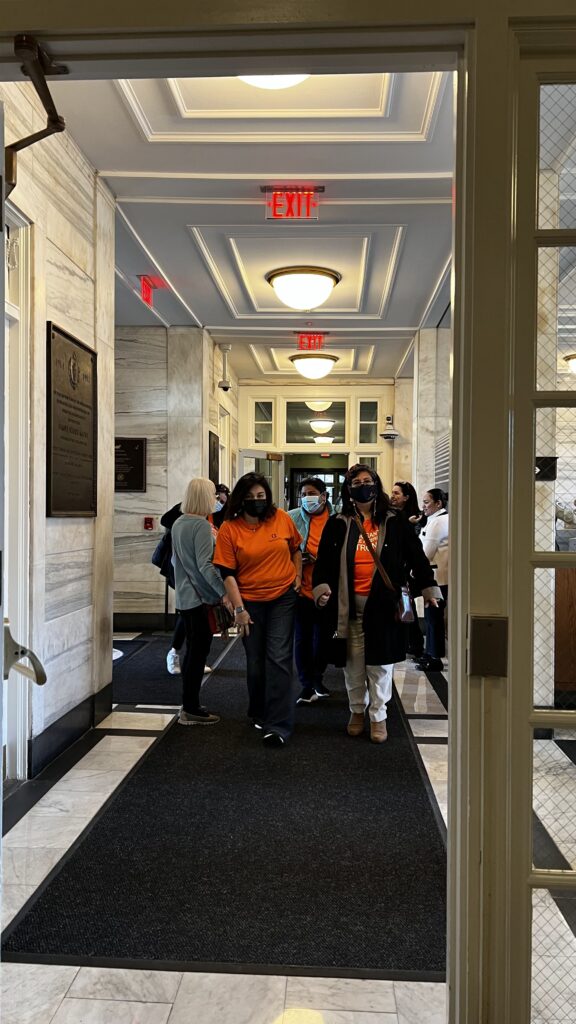
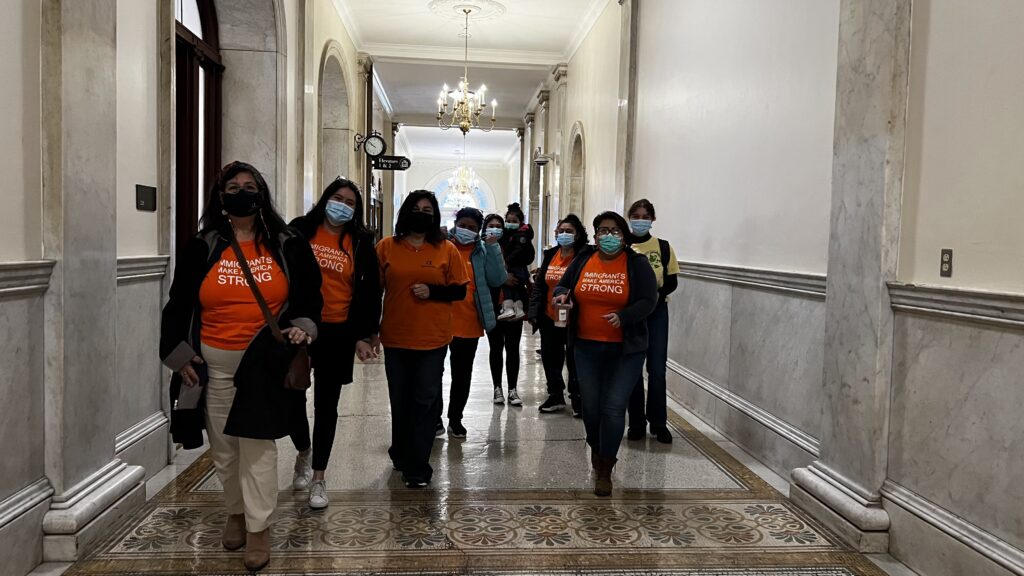
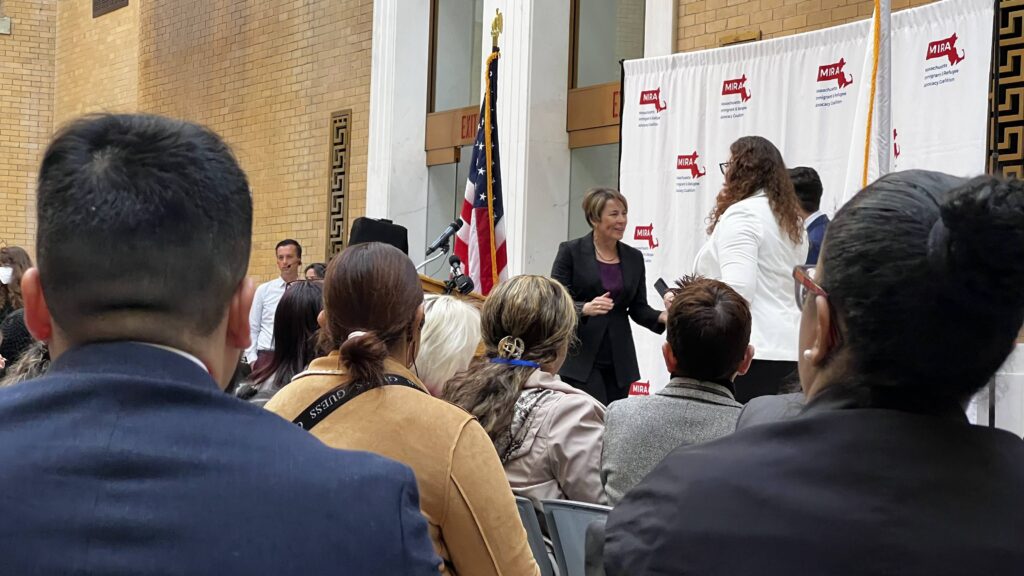
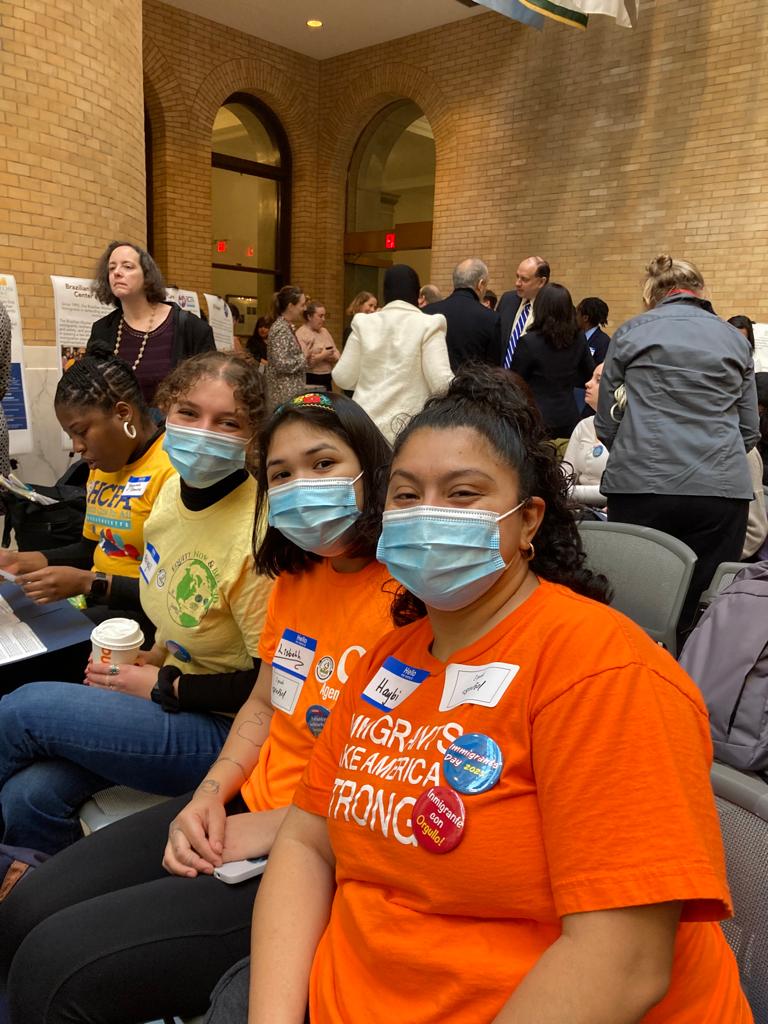
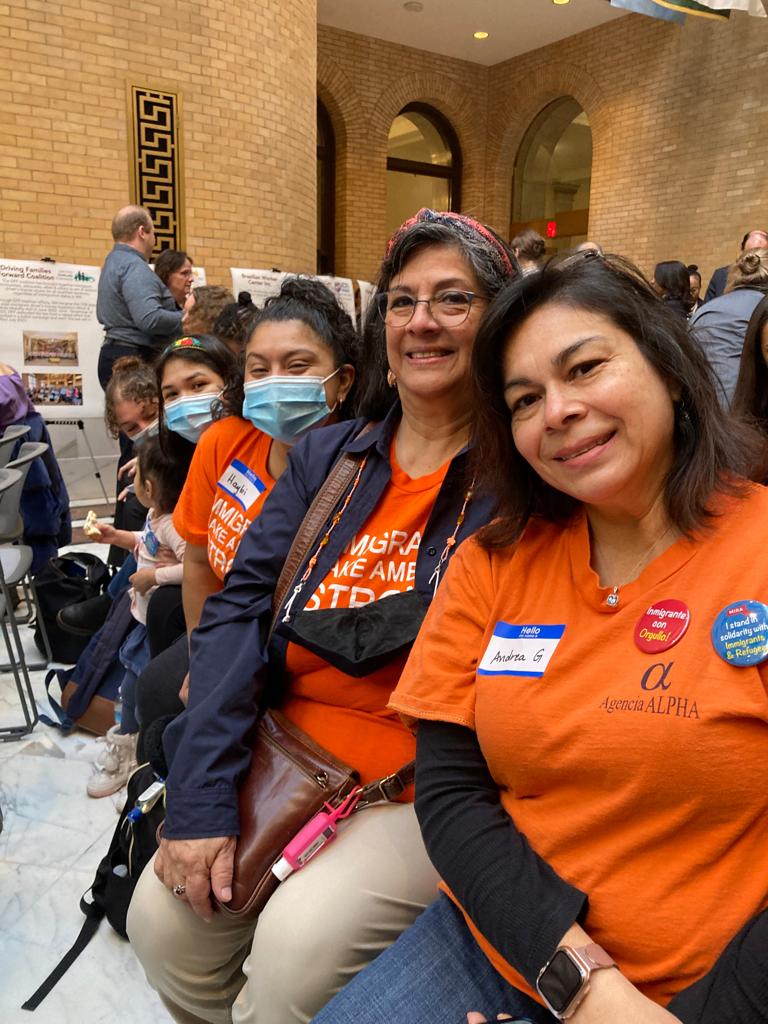
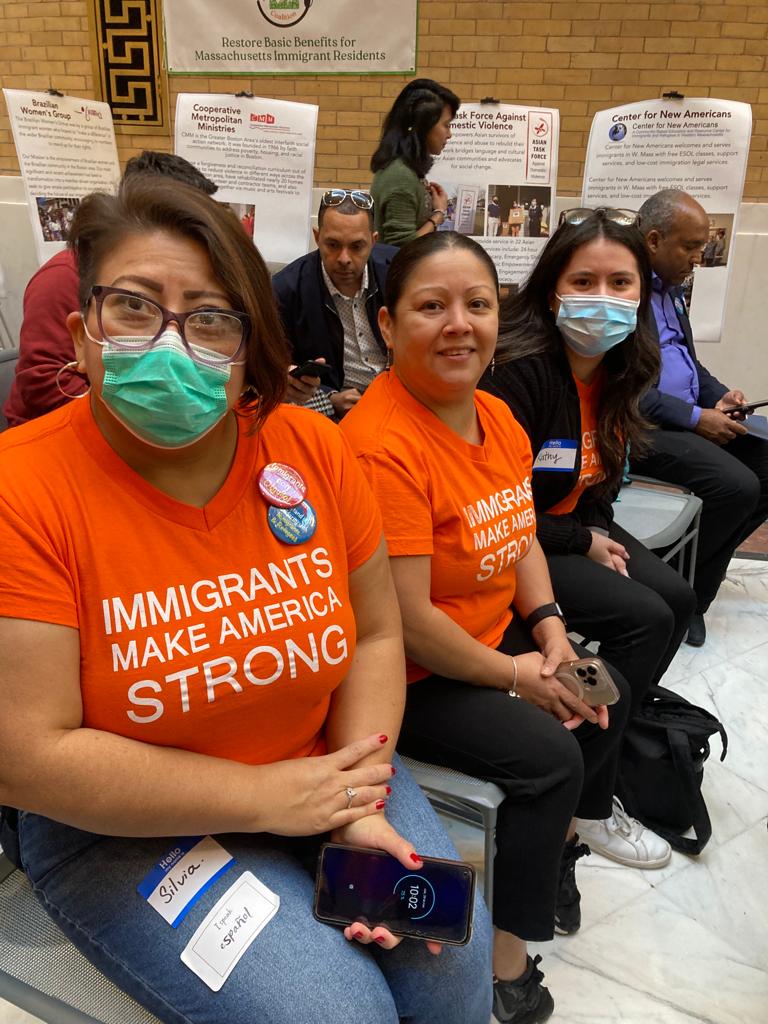
Alcanzando Logros para Hispanos Ahora









ALPHA estuvo en accion este pasado fin de semana (10/29/22). Apoyando a la Coalición de YES ON 4 (para las licencias de conducir) y tambien trabajando con MOIA en la Clinica de Asilo el sabado pasado. Go ALPHA Team!!!!
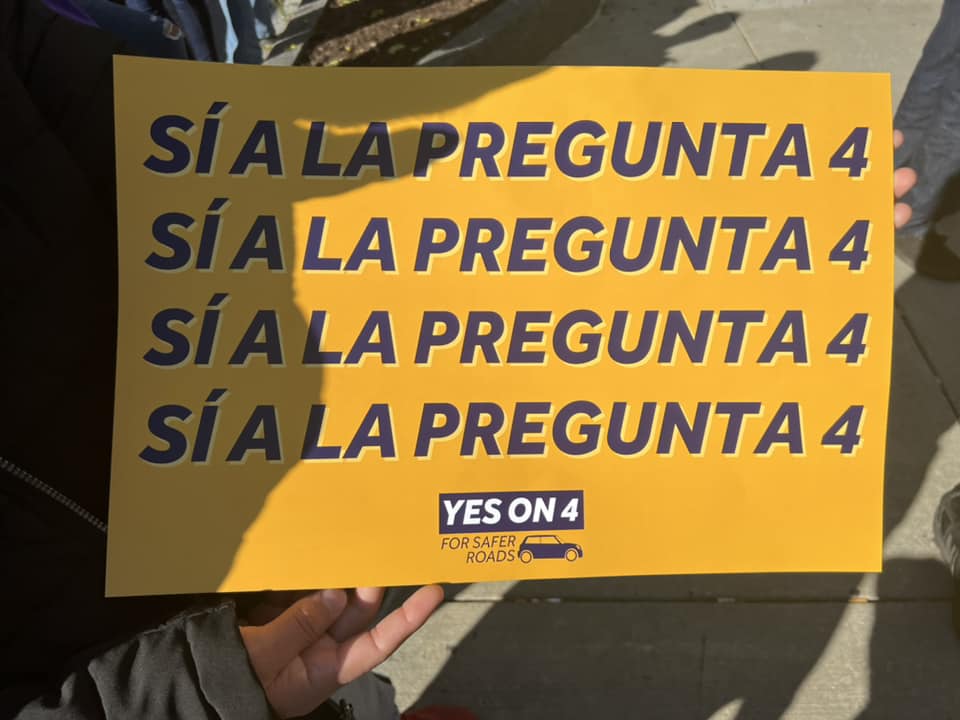
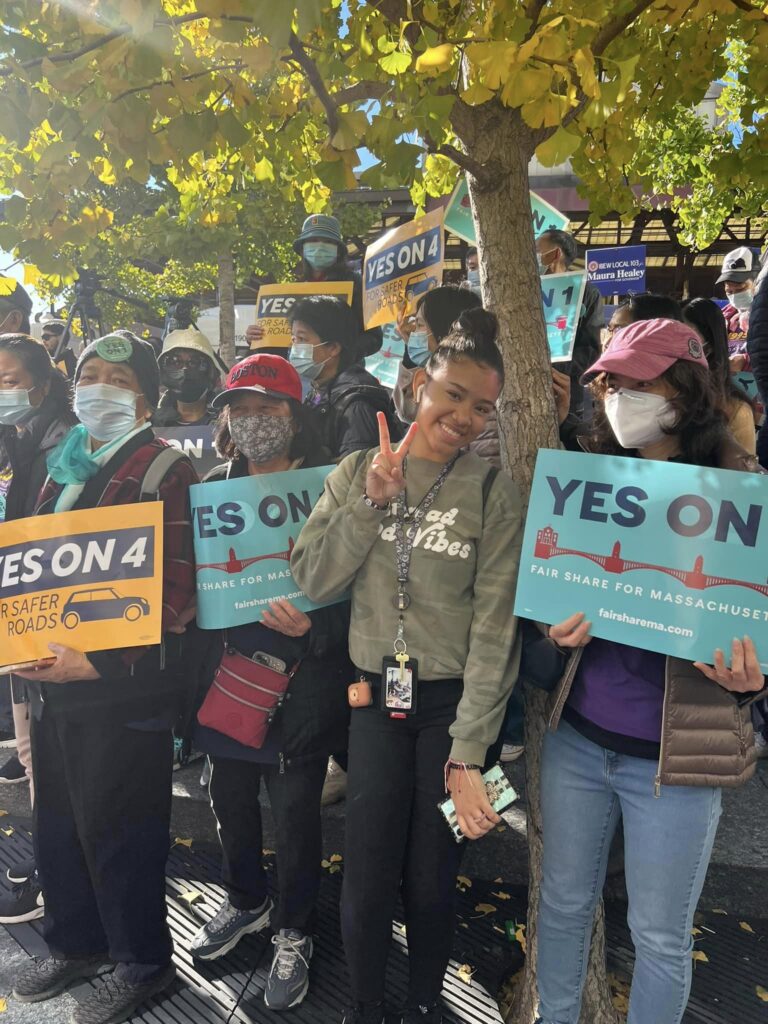
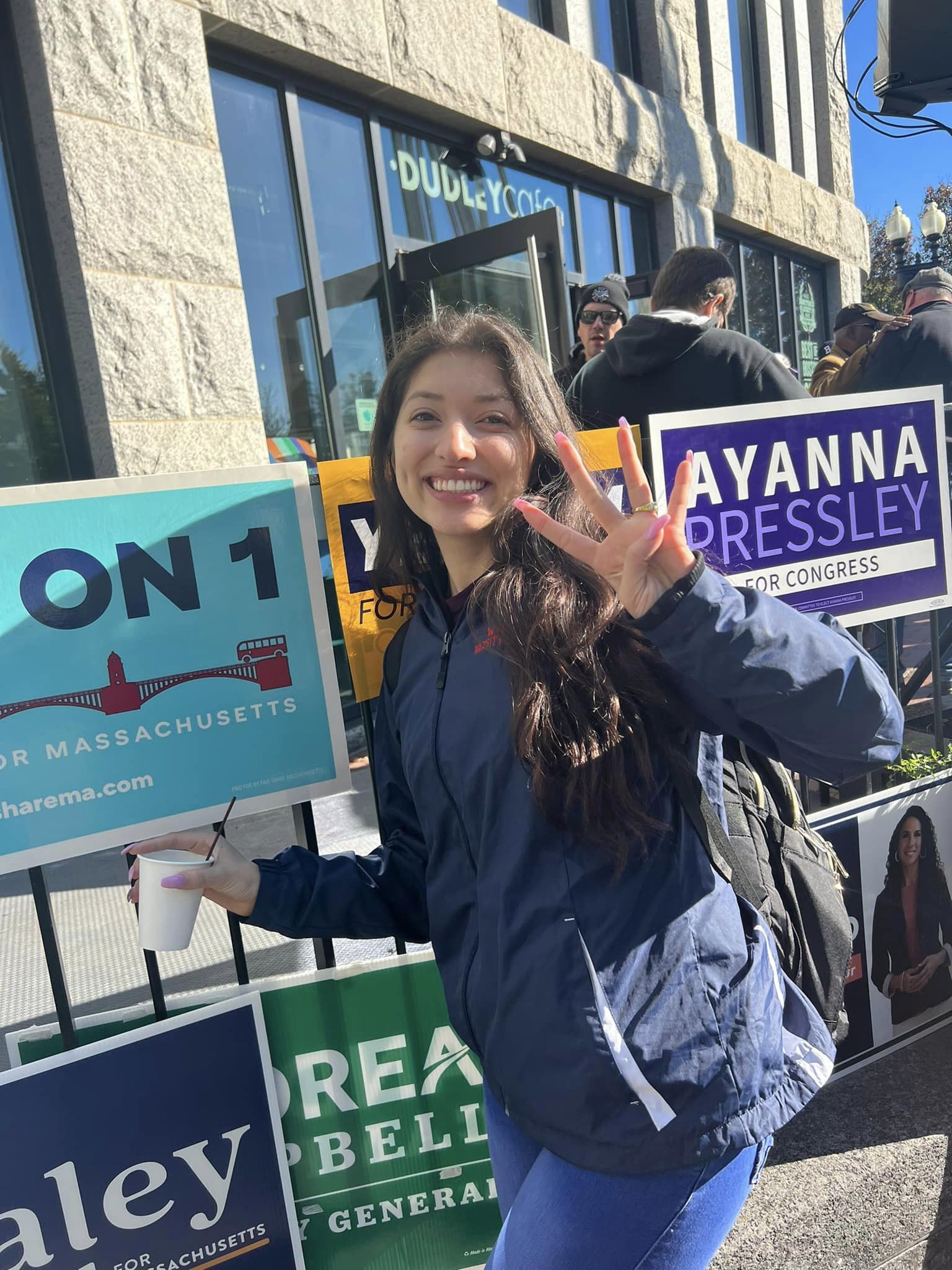

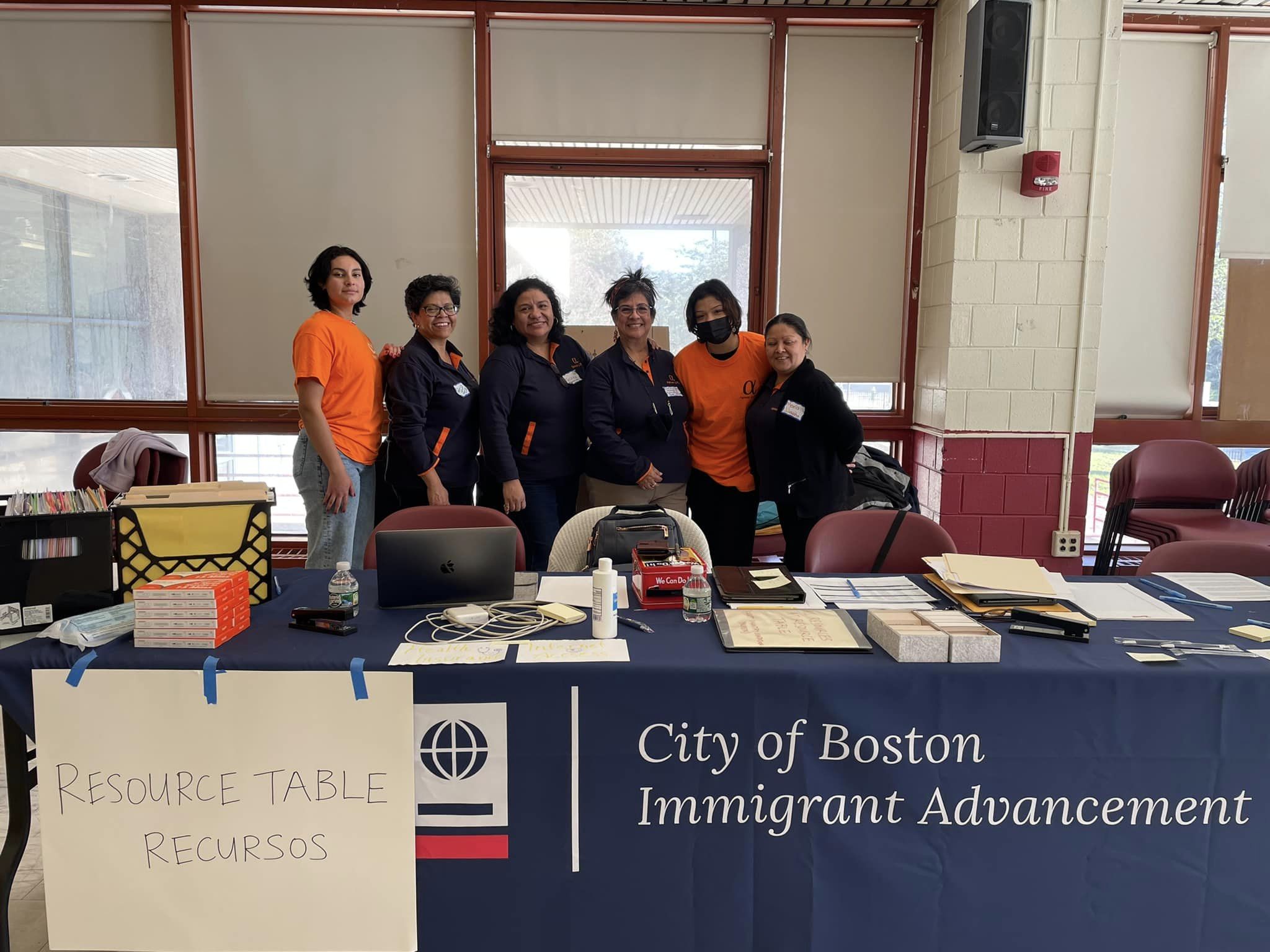
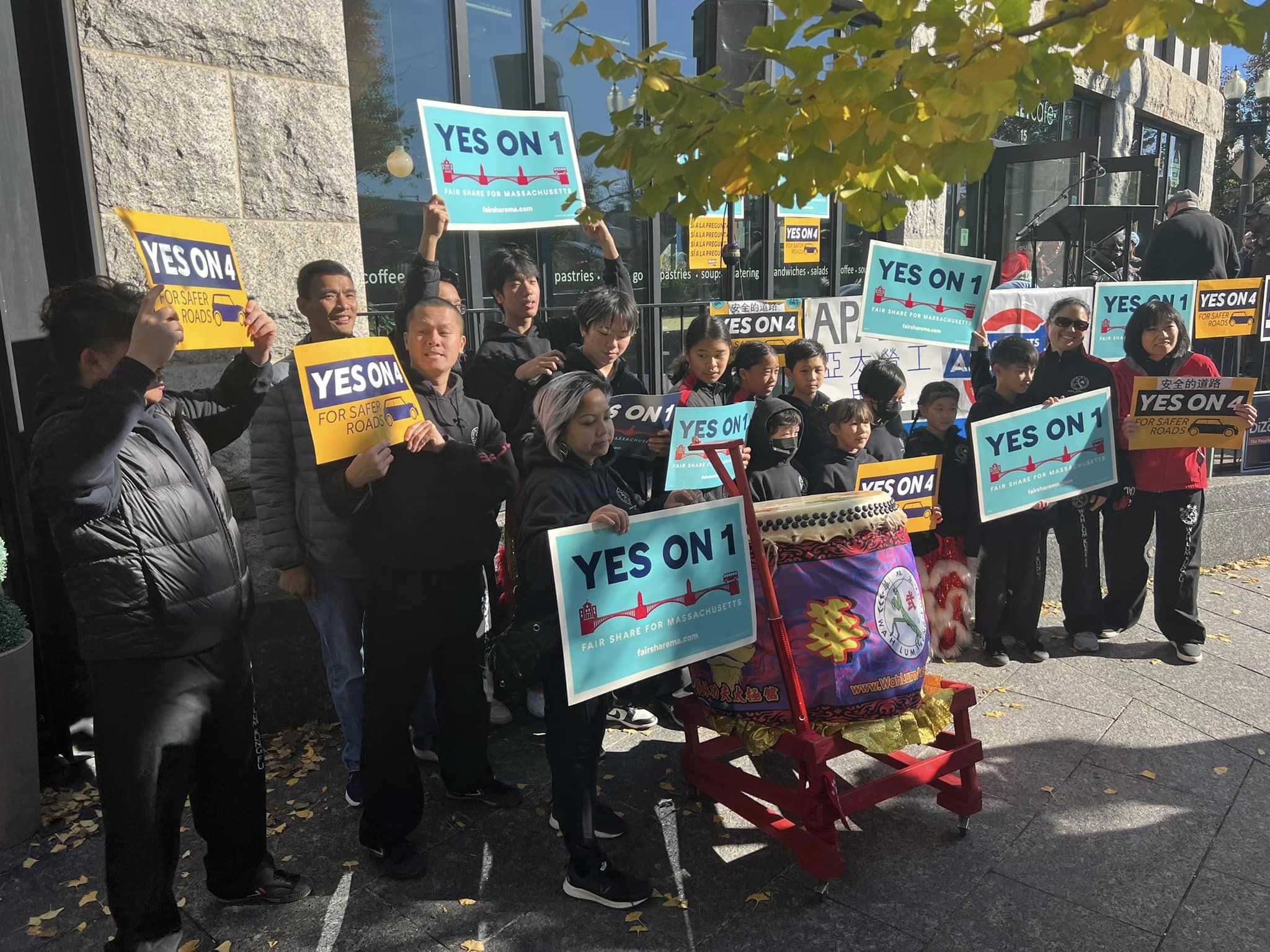

ALPHA held another successful community resource clinic in Waltham this past Saturday. In this clinic 25 people received the COVID-19 vaccine, 3 received the flu shot, 13 people registered to receive free immigration consultations and 36 families received Market Basket cards. Our goal during this clinics is to bring a little bit of help to our community.
Agencia ALPHA tuvo otra clínica de recursos comunitarios en la ciudad de Waltham este sábado 22 de octubre. En esta clínica 25 personas recibieron la vacuna del COVID-19, 3 personas recibieron vacunas de la influenza y 13 personas se registraron para recibir consultas migratorias gratis y 36 familias recibieron tarjetas del Market Basket. Nuestro objetivo es traer un poquito de alivio a las familias de nuestra comunidad!
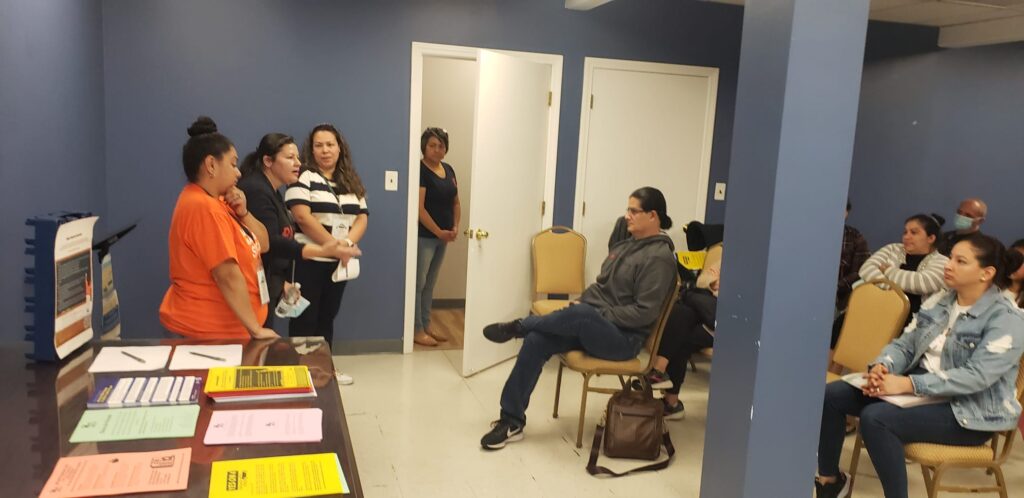
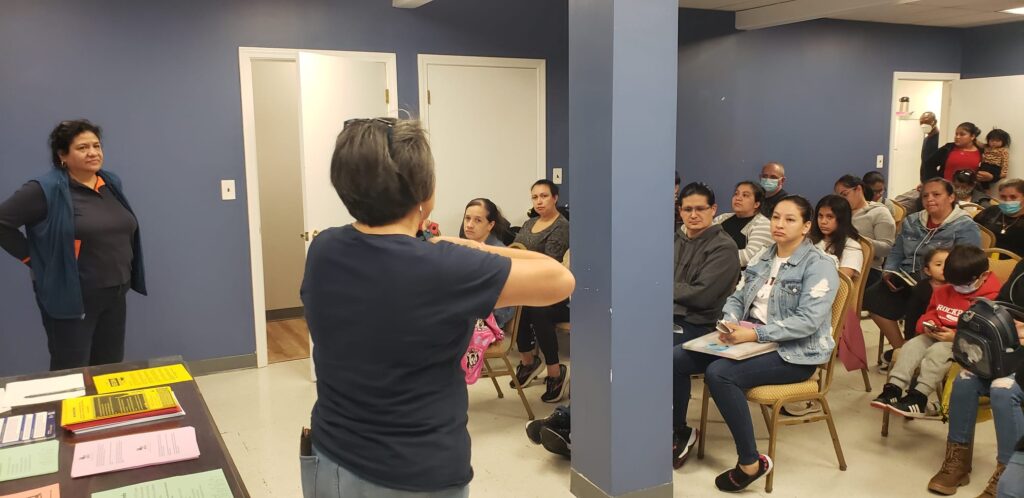
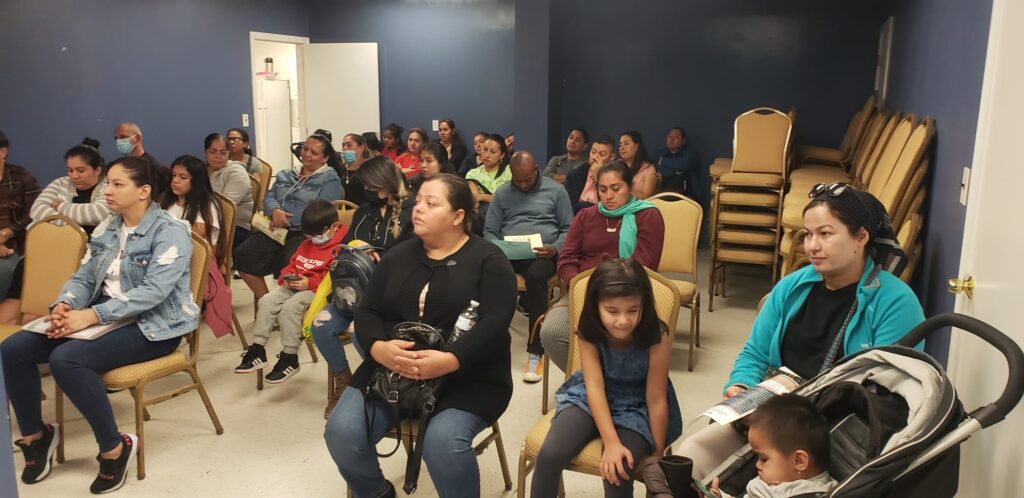
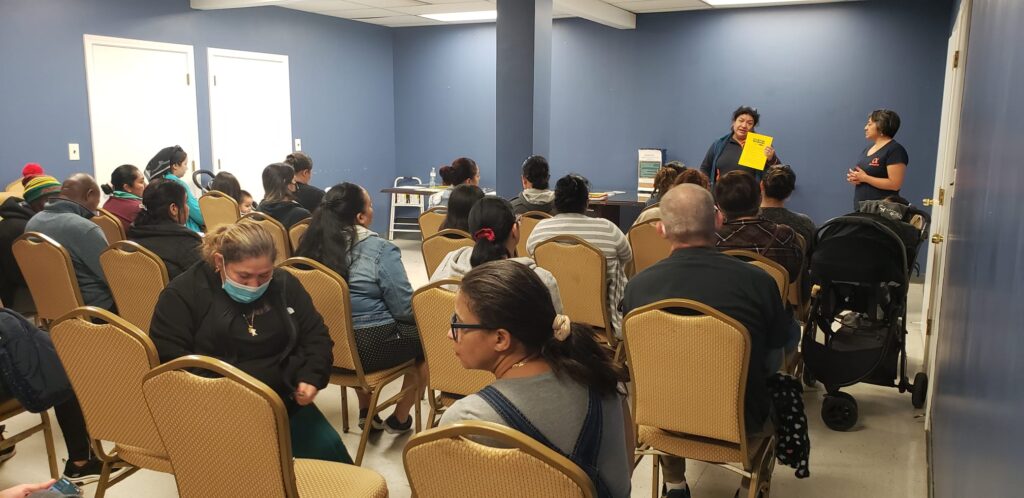
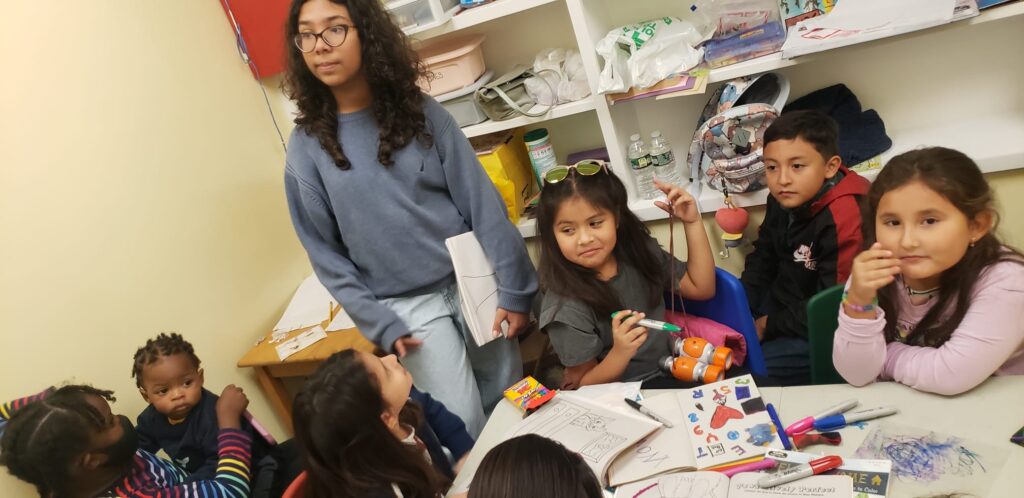
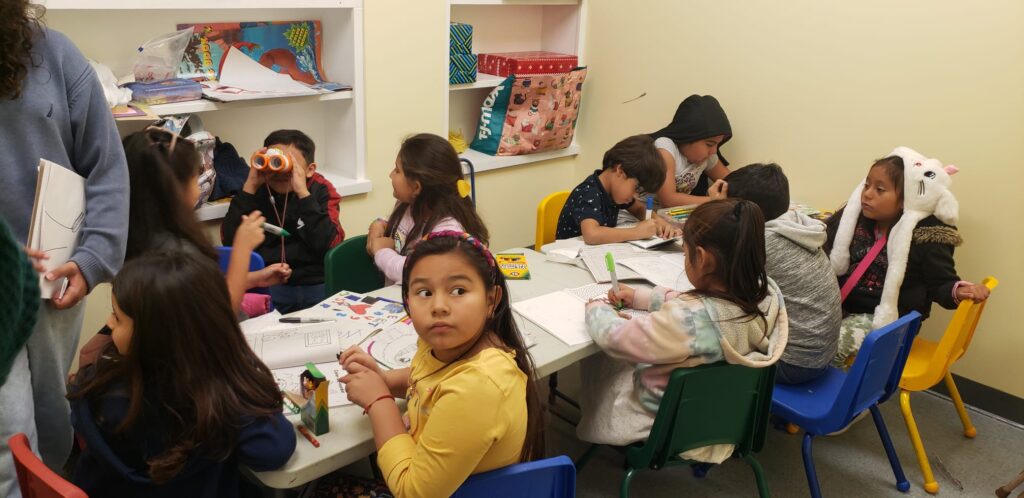
Our Dreamer’s Leadership members visited more than 30 legislators today to thank them for supporting the Safe Communities Act and requested their sponsorship for the next cycle! Some legislators agreed to take some pictures with us!!!! Thanks to the Safe Communities Coalition for providing this space.
Nuestros miembros del programa de Liderazgo de Soñadores visitaron a más de 30 legisladores hoy para agradecerles su apoyo hacia el Safe Communities Act y pedirles q nos apoyen en el próximo ciclo! Algunos legisladores se tomaron fotos con nosotros!!! Agradecemos a la Coalición del Safe Communities Act por brindarnos este espacio.
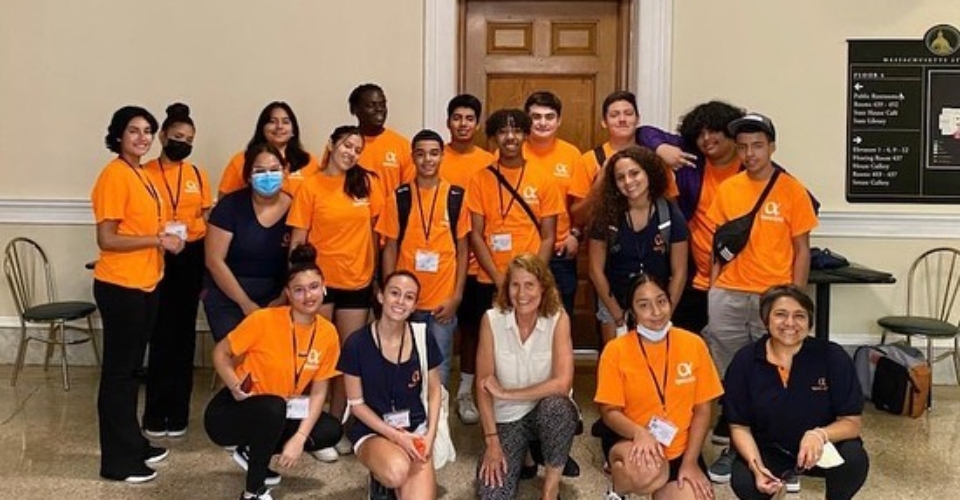






Thanks God, Agencia ALPHA had another amazing Community Resource Clinic on Saturday August 13th at New Life Church in East Boston! Here is a small report of what happened:
Thanks to the whole team!!!
¡A Dios gracias, Agencia ALPHA tuvo otra grandiosa clínica de recursos comunitarios el sábado 13 de agosto en la Iglesia Cristiana Nueva Vida! Aquí comparto con ustedes los resultados:
Gracias a todo el equipo que participo.
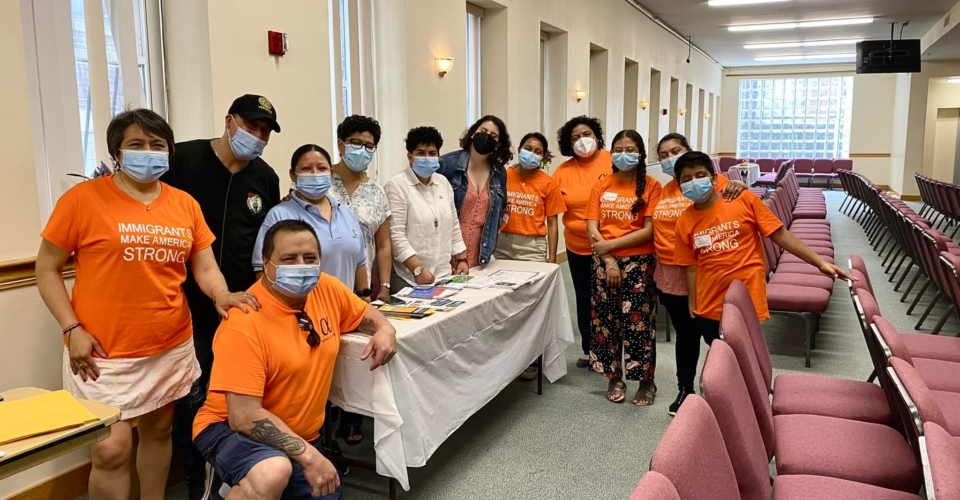







































This is how we recover from this pandemic!
Two Successful Community Resources Fairs for our constituents.
We would like to thank our following partners for making this possible: Congregación León de Judá, Iglesia Cristiana Nueva Vida The City of Boston (Mayor of Boston Immigrant Advancement – MOIA), the Brazilian Workers Center, Health Care for All, the Whittier Health Center, the Massachusetts Immigrant Collaborative and a our staff and IMAS members. THANK YOU!!
Dos exitosas Feria de Recursos Comunitarios para nuestra comunidad inmigrante (Mayo 2022)
Queremos agradecer a nuestros colegas: Congregación Leon de Judá, Iglesia Cristiana Nueva Vida, La Alcaldia de Boston (MOIA), el Brazilian Workers Center, Health Care for All, the Whittier Health Center, el Massachusetts Immigrant Collaborative y a nuestros staff y miembros de la iniciativa Immigrants Make America Strong!


Grandes aportes. “Agradecemos a Dios por este nuevo aniversario y a todas las personas que han apoyado nuestra visión de amor y de ayuda a la comunidad inmigrante en los últimos 20 años”, dice Patricia Sobalvarro, directora ejecutiva de ALPHA, una organización que tiene a otros dos pilares, Damaris Velásquez y Vilma Gálvez, guatemaltecas todas, que trabajan día a día para darle voz a los latinos con un equipo de voluntarios, mentores, Iglesias, aliados comunitarios, miembros y estudiantes.
Por Radio Luz de Boston, las tres activistas salen al aire para apoyar diferentes campañas comunitarias bajo el lema “nunca es demasiado tarde para dar forma a nuestro futuro y para ayudar a muchos inmigrantes a hacerse ciudadanos norteamericanos”. Otra de sus preocupaciones es apoyar a los jóvenes a no dejar la escuela y a lograr una carrera universitaria.

“Muchos de nuestros jóvenes son capacitados y bajo la supervisión de nuestro personal, ayudamos a muchas personas a completar su solicitud de naturalización”, indica Vilma Gálvez que tiene toda una historia de trabajo en asuntos de inmigración.
Con el apoyo de la Congregación León de Judá, Patricia, Damaris y Vilma siguen desplegando grandes esfuerzos para ayudar a inmigrantes que perdieron sus trabajos debido al COVID-19. “Han sido tiempos difíciles para muchos trabajadores latinos y mucho más para los que no tienen papeles”, anotan.

En los primeros meses de la pandemia en el 2020, “muchas personas de nuestra comunidad tenían miedo de buscar ayuda. Después de años de vivir con el temor constante de ser detenidos y deportados, simplemente no se arriesgaban a que su información se compartiera. Escuché muchas historias”, dice la pastora Johana Pérez, de Harvest Ministries. ¡los inmigrantes están ansiosos por sentirse seguros en sus comunidades!
Las tres activistas guatemaltecas están felices de celebrar los 20 años de ALPHA con la comunidad inmigrante apoyando las campañas de vacunación contra el COVID-19 y antes motivando a “nuestra comunidad a participar en el Censo 2020. Nuestro apoyo ha sido fundamental para asegurar un conteo completo y preciso”, dicen.

“Los inmigrantes fortalecemos América”, el lema de la campaña de ALPHA y es en lo que Patricia Sobalvarro cree y comparte con todos los que llegan a ella. Su propia historia y la historia de miles que han compartido su propio caminar con ella en ALPHA es lo que la ha inspirado a pelear a favor de la comunidad inmigrante y a crear espacios seguros donde los inmigrantes pueden abrir sus corazones y recibir la oportunidad de alcanzar su potencial como seres humanos.
“Como su mejor amiga, habiendo sido indocumentada por 22 años, nunca me tuve que preocupar de hacer mi compra, salir con amistades, perderme una cita médica o simplemente manejar a la playa durante mis vacaciones de verano, porque Patricia estaba siempre dispuesta a llevarme”, anota Damaris Velásquez.
Con Vilma Gálvez que desde sus inicios como inmigrante trabajó en el Departamento legal en la Cruz Roja Americana, ALPHA ha ayudado a muchos inmigrantes a hacerse residentes y luego ciudadanos de los Estados Unidos.
¡Felicidades ALPHA por su vigésimo aniversario!
Agencia ALPHA
62 Northampton Street,
Suite H101
Boston, MA 02118
psobalvarro@agenciaalpha.org
By Felice J. Freyer Globe Staff,Updated January 18, 2022, 6:10 p.m.20

Like thousands of people, Gladys Vega was out sick with COVID-19 the first week of January, bedridden for seven days. And like millions of others, Vega hadn’t gotten the booster shot that might have prevented her illness, or made it milder.
Vega wanted the shot — she even runs an agency that provides vaccines, the renowned Chelsea community service group called La Colaborativa. But, Vega explained on Friday, her voice still hoarse,she had gone three times to a vaccine clinic, only to find lines so long she knew supplies would run out before she could get to the front.
That might explain why Chelsea, despite doing a famously stellar job at vaccinating with the first two doses, has one of the lowest rates of booster uptake — 41 percent of those eligible, the seventh-worst community in the state.ADVERTISINGRELATED: Chelsea, a city hit hard by COVID, has become a vaccination standout
As the Omicron surge demonstrates the urgent need for booster shots, the third doses are rolling out unevenly across the state, and the uptake has been slowest in hard-hit communities like Chelsea, according to an unpublished analysis of state data.
“We’re seeing the same sorts of inequities in the booster rollout [as] we did in the original vaccine rollout,” said Carlene Pavlos, executive director of the Massachusetts Public Health Association.
By definition, those eligible for booster shots already have received two doses of the Pfizer or Moderna vaccine, so hesitancy is not the issue.
Still, the percentage of eligible people who have receivedthe third shot has been increasing steadily statewide. Governor Charlie Baker’s administration last Thursday announced $13.5 million in federal funding to support 20 communities with high COVID-19 case rates and high proportions of people of color. The state also has asked for and received support from the Federal Emergency Management Agency to supply 56 vaccinators in needy communities and 51 to work in community health centers.
Statewide, 58.1 percent of the 4 million people who are eligible for booster shots had received them as of last Thursday, according to an analysis of Massachusetts Department of Public Health data by Alan Charles Geller of the Harvard T.H. Chan School of Public Health. That’s up from 50 percent at the end of December. The analysis included only people 16 and older who had received both vaccine doses before July 7.https://flo.uri.sh/visualisation/8387716/embed?auto=1
Town by town, the uptake ranges from 32 percent in Middlefield (in Hampshire County) and Millville (near Woonsocket, R.I.) to 81 percent in Goshen (near Springfield), to more than 95 percent in Tyringham (in Berkshire County).
Among the 20 communities with the lowest rates are cities that are home to low-wage essential workers and thus have been especially hard-hit by the pandemic: Lawrence, Everett, Chelsea, Lynn, Revere, Brockton, Fall River, New Bedford, Lowell, Springfield, and Worcester.RELATED: Northeastern study reveals racial disparities in navigating the pandemic
Throughout the vaccination rollout, Geller said, the cities at highest risk of COVID-19 tended to have the lowest vaccination rates.
The leaders of local groups that serve the most vulnerable communities, especially people of color and immigrants, point to two problems. Some people may not know they need a booster shot. And, they say,the vaccine effort has been hamstrung by the same staffing shortages afflicting the entire health care industry — there aren’t enough people available to administer the shots, making it difficult to schedule clinics.
“We’re seeing a huge influx of people who want to get vaccinated,” said Kevin Whalen, coordinator of Equity Now and Beyond, an umbrella group for immigrant organizations. “It’s been a sea change since mid-November.” But community groups, eager to “strike while the iron is hot” and able to organize clinics, have had trouble finding people to administer the vaccines, he said.
Dr. Charles L. Anderson, chief executive of the Dimock Center in Roxbury, said the health center had to stop offering its vaccination services to community groups. “The capacity is just not there,” he said. Because so many staff members are out sick, Dimock is barely able to meet the demand for vaccinations among its own patients at the clinic.
Boston Emergency Medical Services also has had to cut back on providing vaccinators for community clinics, said Dr. Bisola Ojikutu, executive director of the Boston Public Health Commission. But the commission has held its own clinics, as well as supporting clinics in Mattapan, Dorchester, and elsewhere, she said.
But access is not the only obstacle. Dr. Julia Koehler, a Boston Children’s Hospital pediatrician who volunteers in immigrant communities, said many immigrants “have never heard about Omicron and they have a lot of other stuff to worry about, to put food on the table and pay the rent and get their kids to school.”RELATED: Massachusetts immigrants hit hard by COVID-19 economic losses, safety concerns, new survey says
Low-wage workers often don’t speak English, or have a personal physician, or paid time off, said Pavlos, of the public health association. Getting boosters to such people requires strategies that take these challenges into account, “not just saying, ‘Here they are. You can make an appointment.’ ‘You can make an appointment’ is not a strategy that is going to make [vaccines] truly accessible,” she said.
Dianne Wilkerson, cofounder of the Black Boston COVID-19 Coalition, said she was astounded when the Baker administration recently opened a mass vaccination site at Fenway Park, repeating what she saw as errors of the past, when the initial vaccine distribution seemed to favor the wealthy and connected.
Although the state also recently opened sites in Roxbury, Wilkerson asserted they are vaccinating people from the suburbs who come for the short lines, while the people they’re intended to serve shy away, fearful of government-run operations, unable to sign up, or unaware that they exist.
“The state has steadfastly refused to acknowledge the importance of working with the people on the ground,” Wilkerson said.
Immigrants “are not going to go” to state-run vaccination sites, said Helena DaSilva Hughes, president of the Immigrants Assistance Center in New Bedford, because they have great fears about the vaccine. “You have to really listen to their concerns,” DaSilva Hughes said. They need to hear the facts from people they trust and also need translation services and “a lot of hand-holding” while filling out the paperwork, she said. Her organization has worked primarily with Catholic churches, asking for time near the end of Mass to talk about the vaccine and then holding clinics right after Mass, with Spanish-speaking doctors on hand to answer questions.
Damaris Velasquez‚ director of programs and cofounder of Agencia ALPHA, an immigrant service organization in Boston’s South End, put it this way: “My community comes from countries where city hall is not a friendly place to be. . . . They need to have access to this vaccine in places where they feel comfortable.”
But when Agencia ALPHA held a vaccination clinic at a local church before the Christmas holiday, a lone nurse came to administer the shots. About 100 people showed up, most seeking boosters. And some waited for hours before the overwhelmed nurse had to turn away 25 of them, Velasquez said.
Katelyn Reilly, a Baker spokeswoman, said that all state vaccination sites take walk-ins and that reaching these vulnerable communities has been a priority for the administration. “A core principle of the state’s vaccine program has been to address vaccine equity and ensure access for the Commonwealth’s most disproportionately impacted communities, a principle that has continued to be a priority in rolling out boosters,” Reilly said in a statement.
The state has targeted $46 million since last February for vaccination efforts in 20 hard-hit communities, including the $13.5 million in federal money announced Thursday. The latest funding will support community health workers, start a new program focused on rural communities, and extend outreach programs at 45 community groups, includingthe Black Boston COVID Coalition, the Immigrants Assistance Center,and La Colaborativa.
Asked what advice she had for the Baker administration, Velasquez said, “Trust the small community organizations that are already established. Don’t spend money paying these big names, big corporations. Sometimes to reach the community you want to reach, you have to do it in the bodega.”